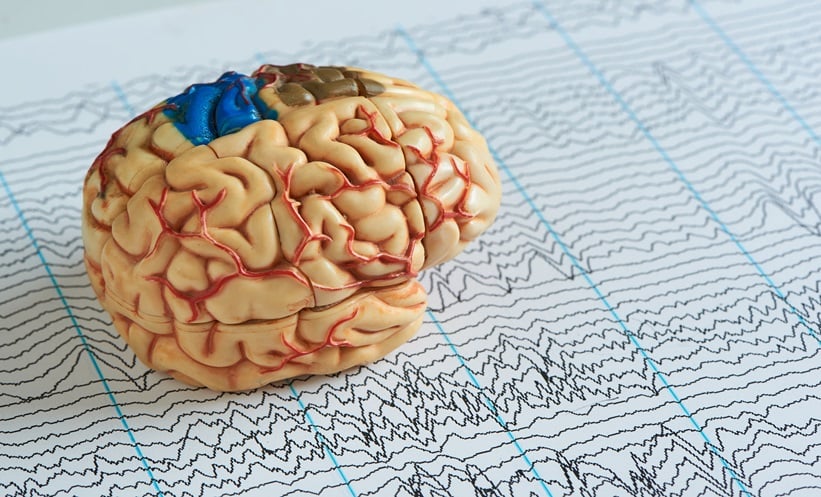A NEURAL activity pattern has been identified that can accurately predict the clinical state of patients with obsessive-compulsive disorder (OCD). For 10–20% of patients with OCD who are treatment-resistant, deep brain stimulation (DBS) of the ventral striatum and ventral capsule is an effective therapy. Researchers aimed to identify a neurophysiological biomarker that can guide DBS programming, and enhance treatment outcomes for patients with severe, treatment-resistant OCD.
In five patients with OCD undergoing DBS therapy, researchers investigated neural signatures produced by the ventral striatum with continuous, intracranial recordings of 10-minute intervals for several months. The team subsequently quantified the change in strength of circadian periodicity in response to DBS in patients with and without a clinical response. A ‘clinical response’ to DBS was classified as time periods when a patient demonstrated clinically meaningful improvement in OCD symptoms. It was found that in patients with a clinical response, the predictability of low-frequency (~9 Hz) power (a neurophysiological feature most prominent in the severely symptomatic state) diminished significantly. Whereas, in patients who did not respond to treatment, the predictability of this neural activity remained consistently high. To determine whether these metrics generalise to a larger sample, the model was tested and validated on a further seven patients with OCD, with similar results obtained.
In conclusion, researchers have identified a neural biomarker of OCD: a circadian pattern of theta/alpha (9 Hz) power originating from the ventral striatum which is most prominent in patients with persistent OCD symptoms. This biomarker can be used to predict clinical response to therapy and therefore facilitate therapeutic decision-making, thus enhancing patient outcomes. The study also highlights the potential use of neural biomarkers and DBS for the diagnosis and treatment of other neuropsychiatric disorders.
Katrina Thornber, EMJ
Reference
Provenza NR et al. Disruption of neural periodicity predicts clinical response after deep brain stimulation for obsessive-compulsive disorder. Nat Med. 2024;DOI:10.1038/s41591-024-03125-0.








